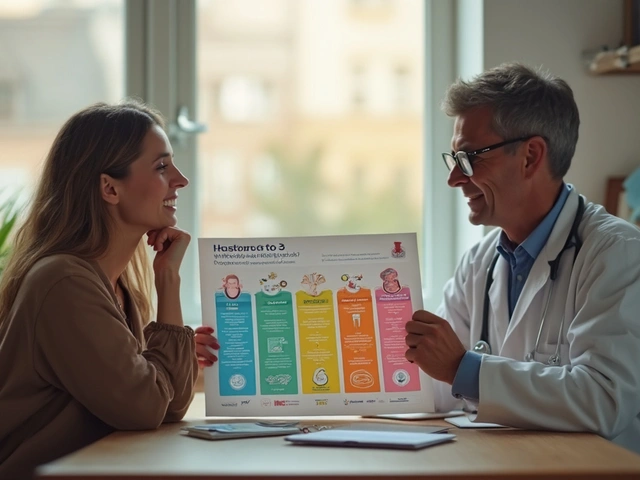Alpinia (Galangal): Uses, Benefits, and Medication Notes
Alpinia — often called galangal — is a member of the ginger family used for cooking and traditional medicine for centuries. If you’re curious about using it as a supplement or a remedy, this quick guide explains what it does, how people take it, and what to watch for when you’re also on prescription meds.
What Alpinia is used for
People use Alpinia for digestion, nausea, and mild stomach pain. Lab studies show some species (like Alpinia galanga and Alpinia officinarum) have anti-inflammatory and antimicrobial compounds. That means they can help calm gut irritation and may fight certain bacteria in lab tests. Some users also report reduced joint stiffness or improved appetite when taking galangal in food or as an extract.
If you’re looking for immediate relief from indigestion or bloating, adding a small amount of fresh or powdered galangal to food or tea is a low-risk step. For ongoing issues — chronic IBS, persistent nausea, or inflammation — talk with a clinician before relying on it as a main therapy.
How people take it and common doses
Culinary use is the safest route: slices in soups, curries, or teas. Standard supplement doses vary a lot. Many commercial extracts range from 300 mg to 1,000 mg daily. Traditional herbalists often recommend whole root forms used in food rather than high-dose concentrated pills. If you choose a supplement, start low and watch for side effects.
Timing matters: take galangal with meals to reduce stomach upset. If you’re using it to ease occasional nausea, a warm cup of galangal tea (one or two thin slices steeped for 10 minutes) often helps without adding a full supplement dose.
Safety and interactions: Alpinia is generally safe for most adults in food amounts. But there are real cautions when combined with certain drugs. Because members of the ginger family can affect blood thinning in some people, avoid high-dose galangal if you take anticoagulants (warfarin, apixaban) or antiplatelet drugs. Also use care if you’re on blood sugar–lowering medicines: herbal components can influence glucose control and might require dose checks.
Avoid use if you are pregnant or breastfeeding unless your doctor says it’s okay. Allergic reactions are rare but possible; stop use if you get rash, swelling, or breathing trouble.
Choosing a product: pick a reputable brand with third-party testing when buying extracts. Look for clear labeling of species (Alpinia galanga vs. other Alpinia species), standardized extract percentages, and an ingredient list without fillers. If you plan to blend Alpinia with other herbal supplements, run that list by your pharmacist to avoid unexpected interactions.
Questions? If you take prescription meds or have a chronic condition, show your doctor or pharmacist the exact product label. That makes it easier to check for interactions and keeps your treatment safe and effective.
The Science Behind Alpinia: How This Dietary Supplement is Changing the Health Industry
Well folks, buckle up, because we're diving headfirst into the world of Alpinia, a dietary supplement that's causing quite the stir in the health industry. Now, I know what you're thinking, "Not another health fad", but this one's backed up by some impressive science! It turns out this tropical plant is a real powerhouse, packed full of compounds that can help with everything from digestion to inflammation. And the health industry? They're practically tripping over themselves to get it on the shelves! It's like watching a crowd of scientists at a rock concert, and Alpinia's the headlining act. So sit back, grab a cup of tea, and let's explore just how this little plant is changing the game!
About
Health and Wellness
Latest Posts


How to Buy Cheap Generic Doxycycline Online Safely and Save Money
By Marcel Kornblum Sep 29, 2025

The power of art in AIDS activism: How creativity can inspire change
By Marcel Kornblum Aug 1, 2023

6 Alternatives in 2025 to Paroxetine: Your Guide to Better Choices
By Marcel Kornblum Apr 15, 2025

